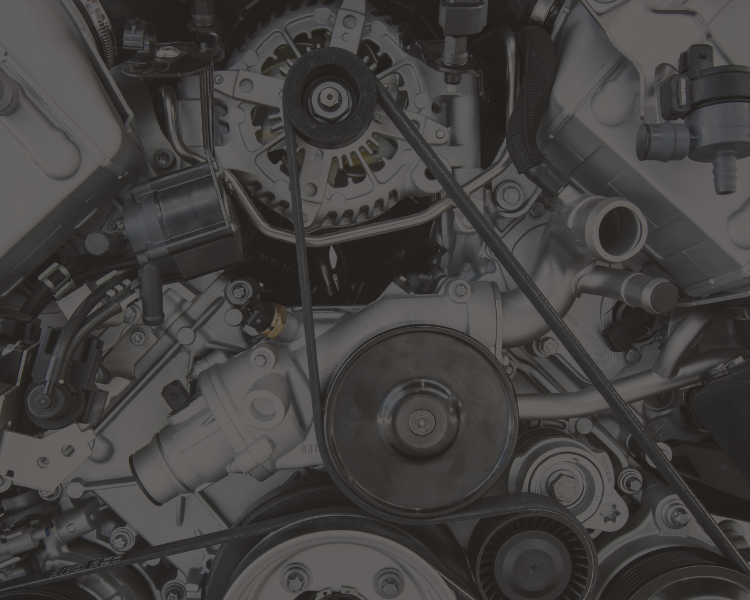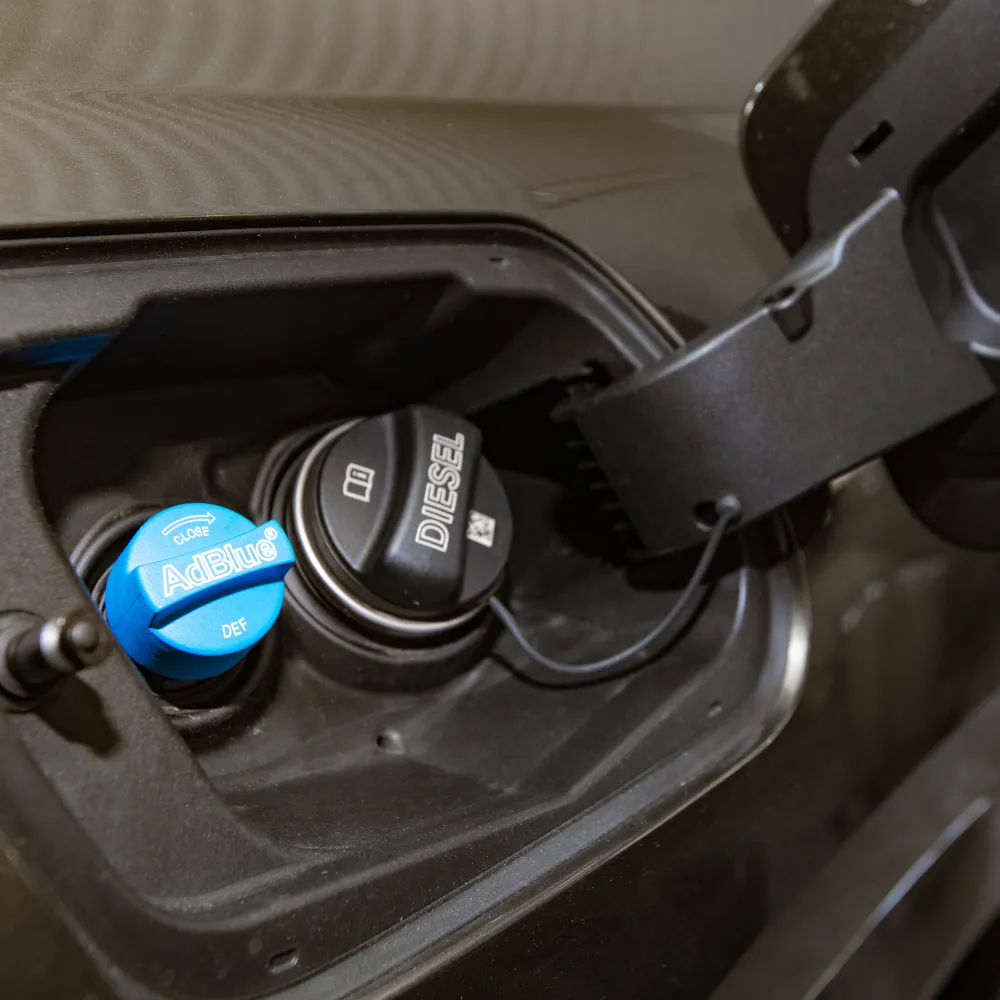What Are Fuel Additives and How Do They Work?
When was the last time you thought about your choice of fuel? Have you ever considered how you can make it work better? Sometimes your gasoline can even be the source of a major problem with your engine.
Fuel additives allow you to enhance certain aspects of the gas you put in your car every day. They can be particularly helpful for old cars, diesel vehicles and driving in specific environments. There are a few things to watch out for, however, and the number of types and options can be overwhelming. Due to the vast quantity of choices, determining what will help and what will hurt your engine can be tricky. Today, we’ll go over what fuel additives are, the different types, what they do and the importance of fuel additives so that you can get the most out of your fuel.
What Are Fuel Additives?
Fuel additives work with the regular gas that you put in your tank. They function by, as the name suggests, adding substances, such as system cleaners, lubricants and performance enhancers, to the fuel to achieve a specific goal. No matter what your pump gasoline says or how it’s advertised, it does not have anywhere near the additive packages a professionally-formulated fuel treatment does.
People typically use additives in small quantities, and they’re cheaper than changing the fuel itself. Modifications to an entire engine are obviously much more expensive, and additives can help drivers avoid them by addressing a specific problem or by helping with preventative maintenance. Using a fuel additive can solve problems on an engine without breaking the bank or the parts. Additives work on issues related to the movement of gasoline or the system it flows through. Cleaning agents, for instance, might be mixed with fuel to remove heavy deposits, reducing friction and improving flow. Individual components like injectors and valves need to be free of any buildup to work at their best. Cleaning out the system can put a stop to sluggish responses and hard starts, among other issues. Lubricants work similarly, helping parts to move better and more efficiently. Other tasks a fuel additive can take on include preventing gas from freezing, adding potentially performance-boosting octane and keeping fuel from going bad over time.
There are a variety of different types of fuel additives, including those meant for off-road and marine usage that may not be legal for use on the streets. Others might be intended for specific environments, such as in cold weather or high-moisture areas. Most fuel additives, however, are developed for an everyday car that might need a little something extra to get it working efficiently.
Different Types of Fuel Additives
The benefits of fuel additives vary widely. They could be performance enhancers or fuel stabilizers. Fuel performance enhancers improve the functioning of your fuel. They may do so by cleaning a system and preventing buildup for the future. Fuel stabilizers keep the fuel intact, preventing adverse long-term effects, such as solidification and corrosion. Below are just some of the types of additives you can use in your vehicle.
1. Fuel Stabilizers
Got an old lawnmower gathering dust somewhere? Chances are, when you go to start it, you’ll have some sputtering to deal with. The gasoline that’s been sitting in the mower may have also caused some damage. As mentioned earlier, a fuel stabilizer will help your fuel hold up over time. Most stabilizers are intended for vehicles and equipment that sees intermittent use or goes long periods without seeing use. Seasonal vehicles such as boats and RVs, lawn care equipment and generators are a few examples. The additive improves efficiency by preventing the separation of gas and water. When fuel separates after being left sitting for a while, it can cause hard starts and engine corrosion. A stabilizer blocks this process and helps the components to stay thoroughly mixed. If your fuel will be sitting for over a month or so, it is probably a good idea to add some stabilizer, especially if conditions are cold.
2. Octane Booster
Before the ’70s, tetraethyl lead, high in octane, was used as an additive in gasoline. Of course, that practice ended when the health hazards of lead came to light. Some people still look for high-octane fuel to put in their cars, whether it makes sense or not. High-octane gasoline is often associated with high power, as it can increase the compression ratio. When the compression ratio is higher, there is more air in the engine’s cylinders. This creates a more powerful explosion when it ignites. The octane levels reflect how much the air-fuel mixture can compress before it ignites.
Engines are typically designed to work with fuel at specific octane levels. Low octane levels can cause fuel to ignite under pressure. The shockwave from this pressure ignition meets up with a similar shockwave coming from the almost-simultaneous ignition from the spark plug. This process can lead to a knocking sound and make your engine less efficient. Using ethanol is one way that refiners increase the octane levels in gas.
Unless your engine is making this knocking sound, you likely don’t need an octane booster. Some older cars that use high-compression engines will benefit from octane boosters. Other vehicles that may require higher octane fuel include premium sports and luxury cars. Octane boosters can also include lubricants for the cast-iron valve seats in these older models. Lubricants can help to reduce wear on these components so that they cool the engine more efficiently.
3. Diesel Cetane Booster
In a diesel engine, you can increase the power in a similar but opposite way. A higher cetane level causes quicker ignition and better fuel usage. A short delay between the fuel injection and ignition is a sign of high cetane levels. A long delay, a sign of low cetane levels, can lead to incomplete combustion, significant noise and more emissions. With gasoline, a high octane level makes the engine ignite more slowly, while a high cetane level in diesel makes it ignite more quickly. Different types of vehicles have different optimal levels of cetane. Few areas in America offer the cetane level needed for most vehicles, so an additive may bring the fuel up to par and increase the efficiency of an engine.
4. Fuel-Line Antifreeze
In especially cold weather, it is not uncommon for condensation to build up in fuel tanks, freezing up the line. Using this additive can prevent freezing using an alcohol base. Others use water dispersants that absorb water in the fuel and move it to the engine, where it safely evaporates into steam that leaves through the exhaust. Ethanol accomplishes some of the goals of gas-line antifreeze, so if you’re using ethanol gas, you probably have some amount of freezing prevention already. An additive may be more beneficial for vehicles using gasoline without any added ethanol, particularly diesel. It’s most helpful when temperatures jump between freezing and thawing. If this cycle occurs frequently, fuel-line antifreeze should help avoid frozen condensation.
5. Fuel Injector Cleaners
The fuel injector in your car uses electronic controls to spray fuel into the engine, creating just the right mixture of air and fuel for optimal combustion. Pressurized fuel is pushed through the nozzle and sprayed out the other end of the injector as an atomized mist, so it combusts more easily. When this injector gets clogged, it can spell trouble for the entire fuel combustion process. Your engine may begin to stutter, misfire or stall, even during idling. General performance can suffer too, giving you less engine power or slower acceleration. Issues like these can be especially prevalent in cold weather.
A proper fuel additive will help to keep this system clog-free, so you don’t run into performance problems on the road. Some additives are for preventative maintenance, while others are a little stronger and can remove existing deposits, which are made of carbon that develops from the combustion process. In general, additives can significantly reduce the deposits on intake valves across a variety of fuel types. They can also reduce hydrocarbon, carbon monoxide and nitrogen oxide emissions.
6. Anti-Gel Diesel Additives
Diesel fuel can have a tough time with cold weather, which causes paraffin wax particles to crystallize in the fuel and clog lines and filters. Cold weather can impede on engine performance, possibly even preventing your engine from starting at all. This can lead to major repairs if not addressed. The fuel combustion process is time-sensitive and depends on proper angles, flow and dispersion. To prevent gelling, this type of additive helps to bring down the freezing point of the fuel. They are better used before the cold temperatures hit, but can still be added after the fact, since they don’t hurt your engine. Many diesel vehicles also use heated fuel lines, but these don’t prevent hard-starting like an additive would.
7. Ethanol Treatment
We hear about the benefits of ethanol gas all the time. Over 98% of gasoline in the US contains some ethanol, but that doesn’t mean it can’t have adverse effects on your car. Distributors use it for a variety of reasons, most notably its widespread availability and capacity to reduce emissions of pollutants such as carbon monoxide. Ethanol fuel uses renewable sources, including corn, making it an attractive eco-friendly option. One problem with ethanol fuel is its tendency to absorb water from the air, making it more prone to separation. Also, some older engines aren’t built for ethanol fuel and can have problems with deposit buildup. Additives can be especially beneficial for ethanol fuels because of these reasons. They can stabilize the gas and help to keep the engine clean.
8. Gas Treatments
A comprehensive gas treatment can address multiple aspects of performance or preventative maintenance. These treatments often remove and prevent carbon deposits, including detergents, to clean parts and stabilize the fuel. Some will only include one or two of these, and sometimes you can combine them with more specialized additives, like octane boosters. If you’re looking for a preventative maintenance solution, a gas treatment is likely your best bet.
You can even find additives for aviation, such as antistatic agents that reduce the safety hazards associated with static charge buildup. An additive makes the fuel more conductive and helps to prevent the accumulation that occurs when moving fuel between vessels. Marine applications may benefit from additives as well, especially if using ethanol fuel. Ethanol’s reaction to water is quite powerful and can easily cause separation and ruin an engine in a marine environment. Stabilizers help to improve the absorption, so it all stays together. Other concerns include contaminants and sludge, which additives can address as well.
What Do Fuel Additives Do?
Some people wonder if fuel additives actually do anything. If you use a high-quality additive for its intended purpose, you can typically expect it to provide the results it manufacturer promises. Additives are not one-size-fits-all, and you must use them to address the correct issues with compatible vehicles. Using an octane booster on a modern car, for instance, may push the octane levels higher than necessary for your engine. You may not see any benefit in that situation. Similarly, a stabilizer for a car that you use every day isn’t likely to do much. A stabilizer would address problems that occur when you don’t drive your vehicle for a while. Unless formulated for multiple purposes, it also won’t provide the benefits of other additive products. So, a stabilizer won’t necessarily offer you any deposit removal or anti-freezing properties.
Preventative maintenance is a primary use for fuel additives. In one study on a direct-injection gasoline engine, base fuel saw a 9.4% loss in fuel flow due to the buildup on injector nozzles. Keeping deposits out of your engine is just one way an additive can improve vehicle performance through preventative maintenance. It may also make your engine run more efficiently and avoid hard starts and sluggish movements, among other adverse effects. It may also prevent a costly repair down the road from an engine that’s been battling gunk and corrosion its entire life. That’s one expensive fix, and if fuel additives can prevent it, you may be looking at significant savings in repair costs.
Fuel additives may need to be reapplied with every fill-up, though some can go longer. Check the packaging to be sure. Some will suggest you add it at every oil change, and others tell you to change it after a specific amount of miles. Typically, you should pour in the additive to your tank before you fill it up. Doing this ensures that the fuel and additive are appropriately mixed, similar to pouring your laundry detergent in the washer before you dump in your clothes. Pouring an additive on top of the fuel doesn’t create as much dispersion.
Do fuel additives work for improving your fuel economy? You may see slight improvements at first due to the cleaner system, but nothing crazy. Many manufacturers will advertise that their product improves fuel economy by leaps and bounds, but these claims are often unfounded. The FTC has even had to step in on some accounts.
The good thing is that, even if you use the wrong additive, it probably won’t harm your engine. These additives are designed to solve specific problems without causing other ones. This no-harm design means that, in general, you can safely use an additive without worrying about doing damage to your engine or fuel. Some additives, however, can harm the sensors in your system, especially in high quantities, so be sure to check with the manufacturer. RISLONE products do not damage your engine. You can also check with your owner’s manual or the manufacturer of your car. Some of them test products themselves for compatibility.
Are Fuel Additives Important?
If you want to keep your engine and fuel lines running smoothly for years to come, then yes, the importance of fuel additives can’t be understated. Again, preventative maintenance applies to any vehicle, and ensuring your fuel is up to par will help keep it moving. Additional lubrication and cleaning qualities help your engine to avoid high friction and wear and tear. A clean engine experiences fewer hard starts. Premium gasoline is not exempt from the requirements of preventative maintenance.
There is room for improvement in general engine efficiency. According to the EPA, the average conventional vehicle only converts 12-30% of the chemical energy in the gasoline to kinetic energy to move the car forward. As much as 72% of these inefficiencies occur in the engine. Any improvement here can significantly help the efficacy of our fuel systems and help us get more out of the fuel we use.
- For old cars: Fuel additives may be especially beneficial for older vehicles since they were created for different fuel types and have different needs than modern cars. Older valve seats, high-compression engines and old parts may require additives to keep them moving as initially intended.
- For seasonal items: The fuel in a lawnmower will go bad if left in disuse over the cold winter months. A stabilizer can keep it fresh. A stabilizer would also help a boat that only sees the water over the summer. Depending on the fuel you use, stabilizers might be especially necessary here, as ethanol fuel can react strongly to exposure to water.
- For diesel vehicles: Diesel is a whole different ballgame due to the differences in engine construction and fuel composition. Stabilizers, antifreeze and anti-gelling additions can all be a massive benefit to diesel vehicles. A truck that won’t start can be detrimental to delivery or the truck itself, stalling production and causing expensive delays or repairs. Drivers can keep them running well and prevent these problems with additives.
Additives can help you solve a wide variety of issues without spending a fortune on repairs. If you have a seasonal-use vehicle that is prone to trouble with startup, a stabilizer can enable you to use it after long periods of disuse. If you deal with sluggish starts in cold weather, a fuel-line antifreeze can offer lower freezing points to solve the problem. An old car with a high-combustion engine likely needs a high-octane fuel to work correctly and avoid knocking. All of these problems are easily fixable with additives.
It is useful to note that you should not combine additives. This factor makes multi-functional additives more attractive, as they can accomplish several jobs with one product. For instance, our array of products includes a complete gasoline fuel system treatment that covers the cleaning gamut, including the valves and combustion chamber. It also lubricates, removes contaminants and prevents the gas from going bad. This product won the Professional Tool & Equipment News Innovation Award — an industry-respected prize for 20 years. These kinds of products make an additive perform a variety of tasks that might otherwise require multiple solutions. They can help you save a substantial amount of money while improving performance.
Start Using Fuel Additives Today
Whether you drive a classic car from the ’50s, a brand-new SUV, a massive sixteen-wheeler or anything in between, fuel additives can make a major difference in the way your engine performs and holds up over time. This improvement may be through general maintenance that keeps your fuel moving smoothly or through antifreeze treatments that allow your car to start in the coldest of temperatures. Nearly every vehicle can benefit from some kind of fuel additive.
RISLONE has been working on performance chemicals for over 95 years and we know a good additive when we see one. With our wide range of products for different vehicles, you can trust that your engine is getting quality treatment. Find a RISLONE retailer today to discover how we can keep your car running smoothly.




